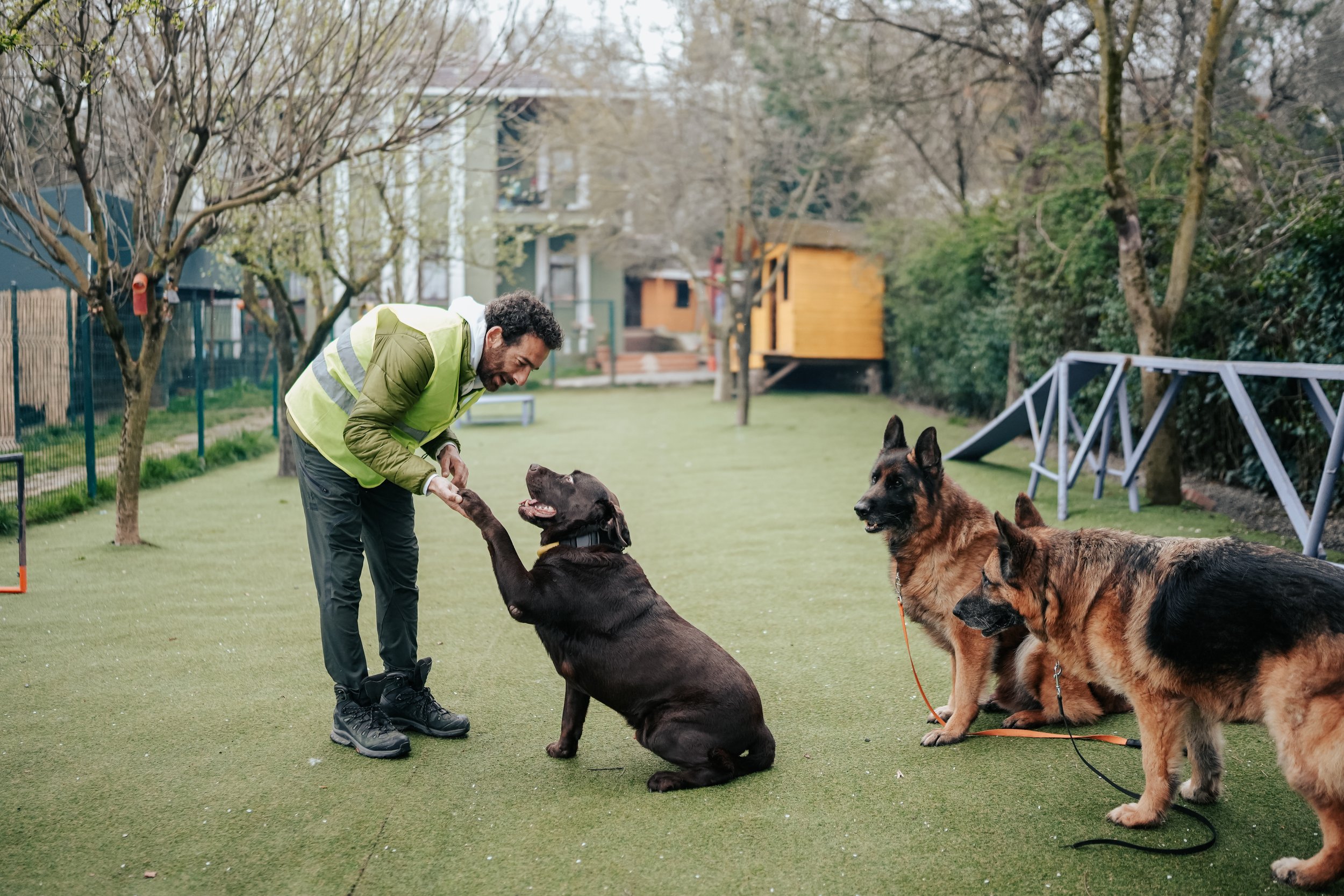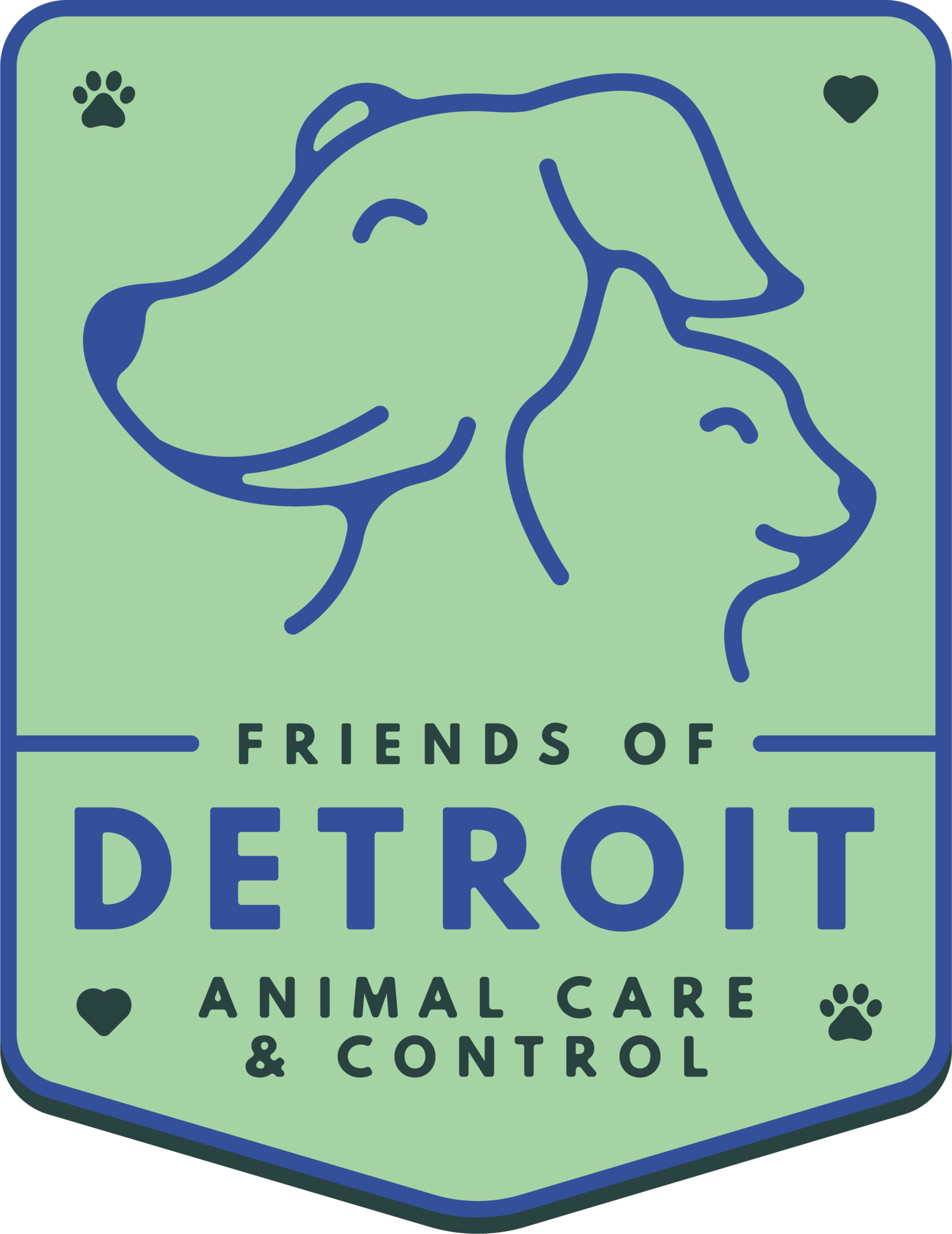
Core Beliefs
Friends of Detroit Animal Care & Control (FoDACC) believes in creating safer communities for humans and dogs alike. We firmly believe that every dog is an individual, deserving to be understood, appreciated, and loved for their distinct traits and behaviors. We believe that every dog deserves to be treated with kindness, patience, and respect. We advocate for responsible pet ownership and evidence-based solutions to create safer communities, regardless of breed. By focusing on education, training, and promoting positive interactions between dogs and people, we can build a community safe for people and dogs.
FoDACC is both a force-free organization and an anti-breed specific legislation (BSL) organization. We do not discriminate against anyone on the basis of sexual orientation, socio-economic status, education level, gender or perceived gender, neurodivergence, race, creed, physical ability, or any protected class. We will not enter into any partnerships with any organization, business, or person who is not also aligned with our philosophies.
All Dogs Are Individuals
Just like humans, dogs have individual personalities. Their behavior is shaped by their unique experiences, genetics, and environment. From playful poodles to gentle pit bulls, every dog is an individual with its own temperament and character.
There is no one-size-fits-all approach to understanding dogs. Breed stereotypes can be misleading and damaging to your relationship with your dog. Factors such as upbringing, socialization, and training play a far more significant role in shaping a dog's behavior.
It's time to break free from breed stereotypes. Aggression, friendliness, or any other behavior is not inherent to a specific breed. By recognizing and appreciating the unique qualities of each dog, we can dispel myths and promote better bonds with our pets.
Understanding that dogs are individuals encourages responsible ownership. It emphasizes the importance of knowing your dog, respecting their boundaries, and catering to their specific needs. By recognizing the uniqueness of each dog, we can provide better care, ensuring a happy and fulfilling life for our furry companions and for ourselves.
All Dogs Deserve to Be Trained with Kindness
Force-free training relies on positive reinforcement techniques, rewarding good behavior instead of punishing the bad. Dogs, like humans, respond better to positivity. By using treats, toys, and praise, we motivate our furry friends to learn and obey without fear.
Dogs are naturally inclined to trust humans. Force-free training builds on this trust, fostering a strong bond between you and your canine companion. When your dog feels safe and loved, they are more likely to follow commands willingly.
Force-free training emphasizes clear communication between you and your dog. Through positive reinforcement, your dog learns to associate commands with positive outcomes, making it easier for your dog to understand what you expect. This clear communication strengthens your relationship, making interactions more enjoyable.
Force-free training prioritizes your dog's emotional and physical well-being. By avoiding harsh methods, you create a safe and nurturing environment at home. Dogs trained without force are less likely to develop aggression or fear-based responses, ensuring a peaceful atmosphere for everyone.
Breed-Specific Legislation Is Unfair and Ineffective
We believe in evidence-based approaches to promoting responsible pet ownership and ensuring public safety. Breed-specific legislation (BSL) targets specific dog breeds, labeling them as inherently dangerous. However, this approach is based on stereotypes and generalizations, overlooking the fact that a dog's behavior is shaped by individual factors such as training, socialization, and environment.
BSL diverts resources away from effective measures such as education, training, and community outreach. Focusing on responsible pet ownership and promoting positive training methods can create safer environments for both people and animals.
BSL does not address the root causes of dog aggression, such as lack of socialization, improper training, or neglect. By focusing on education and prevention, we can tackle these issues and promote responsible ownership, leading to a decrease in dog-related incidents.
Many communities have successfully replaced BSL with breed-neutral ordinances. These ordinances focus on responsible pet ownership, encouraging all dog owners to follow basic guidelines, ensuring the safety of the community without unfairly targeting specific breeds.



